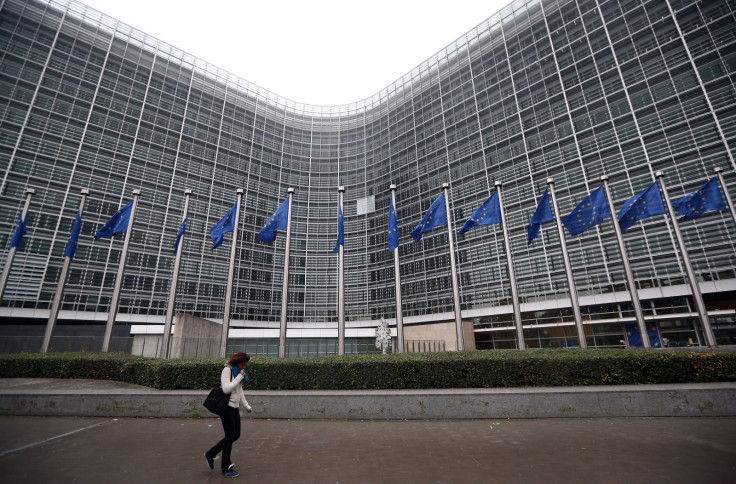EU referendum: Turning our backs on Europe would be a retrograde step
Hope and opportunity. Catastrophe and failure.
As the United Kingdom stands on the brink of the most momentous decision it will make for a generation, both Leave and Remain camps have laid claim to the former while presaging the latter should we vote the Wrong Way.
Reducing Thursday's referendum to a Manichean, good-versus-evil choice is deeply misguided. The reality is always more nuanced but we've seen little in the way of subtlety over the course of a campaign characterised by bitterness and rancour. What both sides have achieved is to coarsen the overall tone of the debate and engage in scare tactics – all of which has been gleefully lapped up by the mainstream media.
Fleet Street hasn't stepped up to the mark either. It was gripped by the novel possibility that Conservatives, free of party political allegiances, could launch ad hominem attacks on each other. Unfortunately, the so-called 'blue-on-blue' denunciations were overwhelmingly carried out by pale, white, middle-aged men who were just as interested in their future place in the firmament (post-referendum) as the EU decision itself.
Likewise, the media didn't seek out why Jeremy Corbyn was lukewarm at best in his support for the EU (with immigration playing badly among Labour's core constituency in the North). Instead, it took a comedy show to get out of Corbyn that he was committed 7/10 to the EU, hardly a ringing endorsement and one we, the media, should have investigated earlier.
Diverse voices have been ignored by both sides of the debate. Women, ethnic minorities and people's opinions from 'the regions' have largely played second fiddle to the easier-to-sell machinations from within the Westminster bubble.
In a world where social media is king, extreme points of view are amplified and have floated to the top of the referendum discourse. But that's because most of the 140-character missives have been a load of hot air. New heights have not been scaled. Mudslinging has become the new parlour sport. Instead, characters have been besmirched and fear has been promulgated, leaving the voter on the sidelines feeling confused and disenfranchised. Amidst the sound and fury, it was astonishing to hear the prime minister acknowledge just four days before polling day that people found the debate confusing – and that he personally needed to do better to get his argument across.
Characters have been besmirched and fear has been promulgated, leaving the voter on the sidelines feeling confused and disenfranchised.
Last week at a panel I was airing my views on, it was pointed out that 'Remain' was hardly a call to action. 'Leave' – whether you agree with their mission statement or not – was a much more active construct. That opinion has absolute credence as we are poised to give judgement on a bloated, undemocratic institution frittering away our money. Shouldn't we take our own future in our hands and strike out on our own?
At the International Business Times UK, we've sought to give a platform to as many diverse voices as we can. Harcharan Chandhoke, a former staffer at The Daily Mail, passionately believes a single graphic can stop the most virulently anti-immigration Brexiteer in their tracks (good luck with that). Meanwhile, Kelvin Hopkins – the Labour MP for Luton North – said the only way not to sign up to a transatlantic trade deal and save the NHS was to vote Leave.
The referendum has split people working for IBT down family lines too. Columnist Michael Toner gave 10 real reasons to Leave the EU, prompting his daughter, IBTimes UK reporter Harriet Sinclair, to respond in kind with 10 reasons to Remain.

We are proud here at the IBTimes UK to have presented both sides of the argument in a thoughtful and even-handed way.
But there are some decisions too important for one to sit on the fence.
It is for this reason that I, as editor-in-chief of the title, urge you to vote to Remain.
The European Union is far from a perfect construct. But I personally believe that to turn our backs on Europe would be a foolhardy move.
The choice to Leave is certainly a call to action, but one whose consequences will have long-reaching ramifications. One colleague at IBT UK who said he wanted to Leave said a small recession was a 'price worth paying'. That we have come to a point where people are prepared to have their financial future put at risk is an indictment on how Remain has failed to inspire. From a practical point of view, how will businesses adjust? In this article Miriam Gonzalez points out how firms are utterly unprepared for the brave new world should we vote to Leave.
Pretty much the might of the business community is ranged against Leave. We are based in Canary Wharf, surrounded by City institutions which make decisions that win or lose their firms millions of pounds in an instant. These professionals, who thrive on risk and chance, believe to Leave is one step too far.
This is not the time to trot out figures and statistics. The same numbers have been challenged and discounted by either side. With the vote just hours away, they bear no repeating here.
Instead the figure that plays most in my mind is the 'undecideds'. This small, wavering percentage of people - who have yet to make a decision - that will carry the day with the referendum currently too close to call. It is them I appeal to.
Hope and opportunity. Catastrophe and failure. Add to that healing and reconciliation. After this referendum campaign, I fear this is one path which will be a long, rocky road to tread along, whatever Thursday's outcome.
John Crowley is Editor-in-Chief of International Business Times UK.
© Copyright IBTimes 2025. All rights reserved.





















